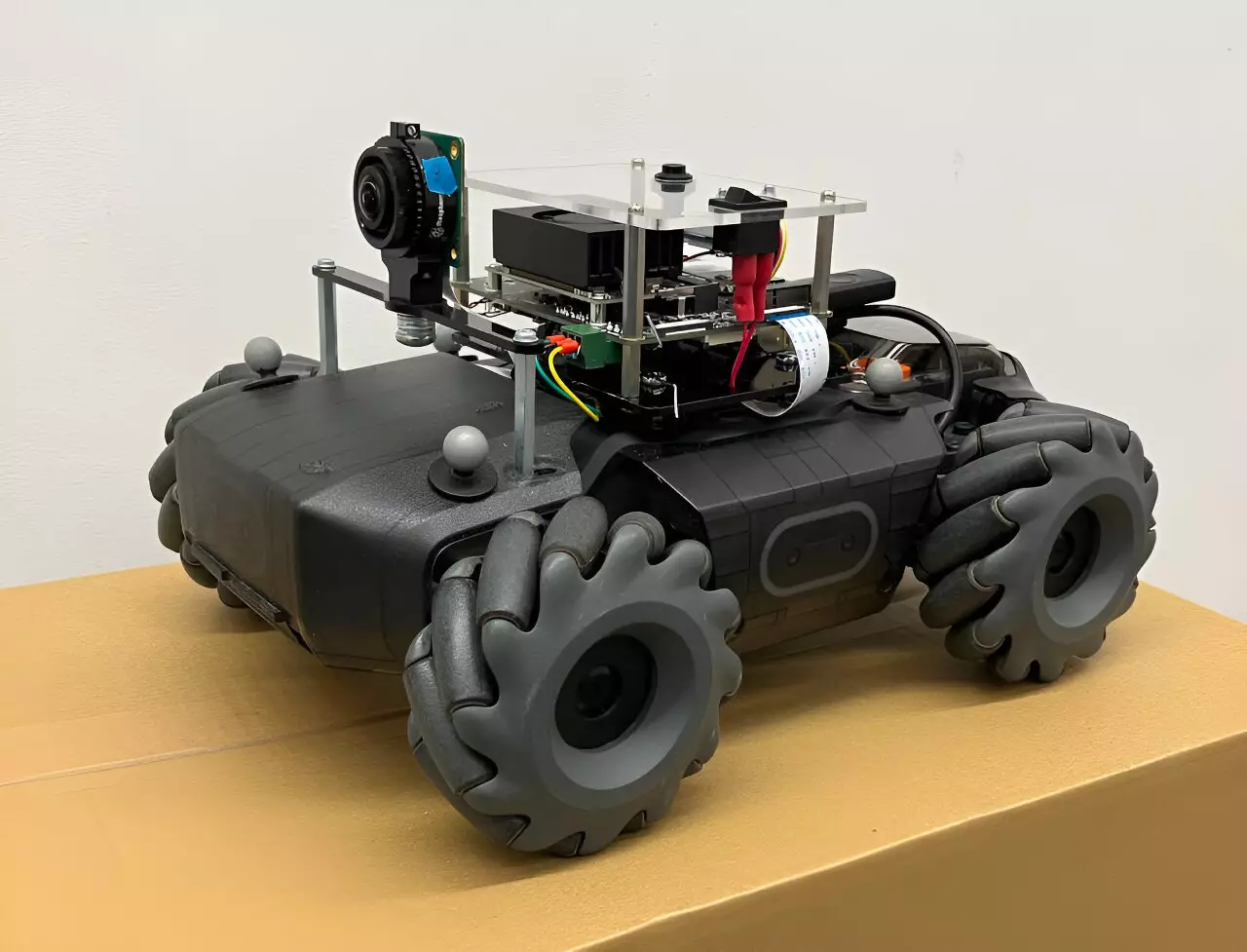The advent of teams of robots has revolutionized the capabilities of autonomous systems, allowing for more complex missions to be carried out efficiently. The combination of hardware and software tailored for multi-robot applications has opened up a new realm of possibilities in the field of robotics research. The University of Cambridge has recently introduced the Cambridge RoboMaster platform, designed to propel advancements in multi-robot research. This platform, detailed in a paper published on arXiv, comprises a fleet of customized Robomaster wheeled robots along with software for simulating and training the robots on specific tasks.
The team at the University of Cambridge, led by Principal Investigator Amanda Prorok, embarked on a mission to create solutions for collective intelligence in multi-robot systems. The Cambridge RoboMaster platform was meticulously developed to meet a set of requirements, including cutting-edge computing power, speed, agility, and durability. By leveraging customized versions of DJI RoboMaster S1 robots, initially designed for educational competitions, the researchers were able to build a robust foundation for their platform. Over the course of three years, continuous improvements were made to enhance the capabilities of the robots, making them ideal for a variety of research projects.
The Cambridge RoboMaster platform boasts a compact yet powerful design that strikes a perfect balance between size and capabilities. With a custom controller and upgraded main computer, the robots are capable of reaching a top speed of 4.5 m/s, making them highly agile and effective for indoor experiments. The platform’s control stack enables full on-board autonomy and peer-to-peer communication, allowing for seamless operation in multi-robot scenarios. Priced at around $700, the Cambridge RoboMaster is not only affordable but also offers advanced functionalities that are essential for multi-agent research.
The versatility and cost-effectiveness of the Cambridge RoboMaster make it an attractive option for academic and research settings worldwide. Researchers can utilize the platform to test algorithms for multi-agent navigation, automated transport logistics, environmental monitoring, and search and rescue missions. The platform’s ability to navigate indoor and outdoor environments with ease demonstrates its power-efficiency and adaptability. While the primary focus is on research and experimentation, the Cambridge RoboMaster serves as a valuable tool for testing algorithms that have real-world applications in various domains.
Looking ahead, the researchers behind the Cambridge RoboMaster have ambitious plans to further enhance the platform and expand its capabilities. Future projects will concentrate on improving on-board sensing, decentralized communication, and control mechanisms. Additionally, efforts will be made to explore the platform’s potential in integrating research with drones, pushing the boundaries of multi-robot and multi-agent systems. By continually refining and extending the functionalities of the Cambridge RoboMaster, the team aims to drive innovation in the field of robotics research.


Leave a Reply